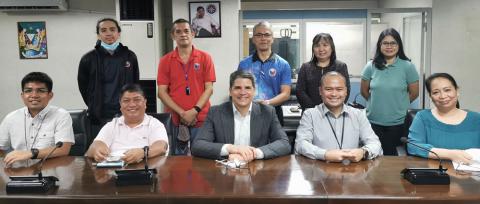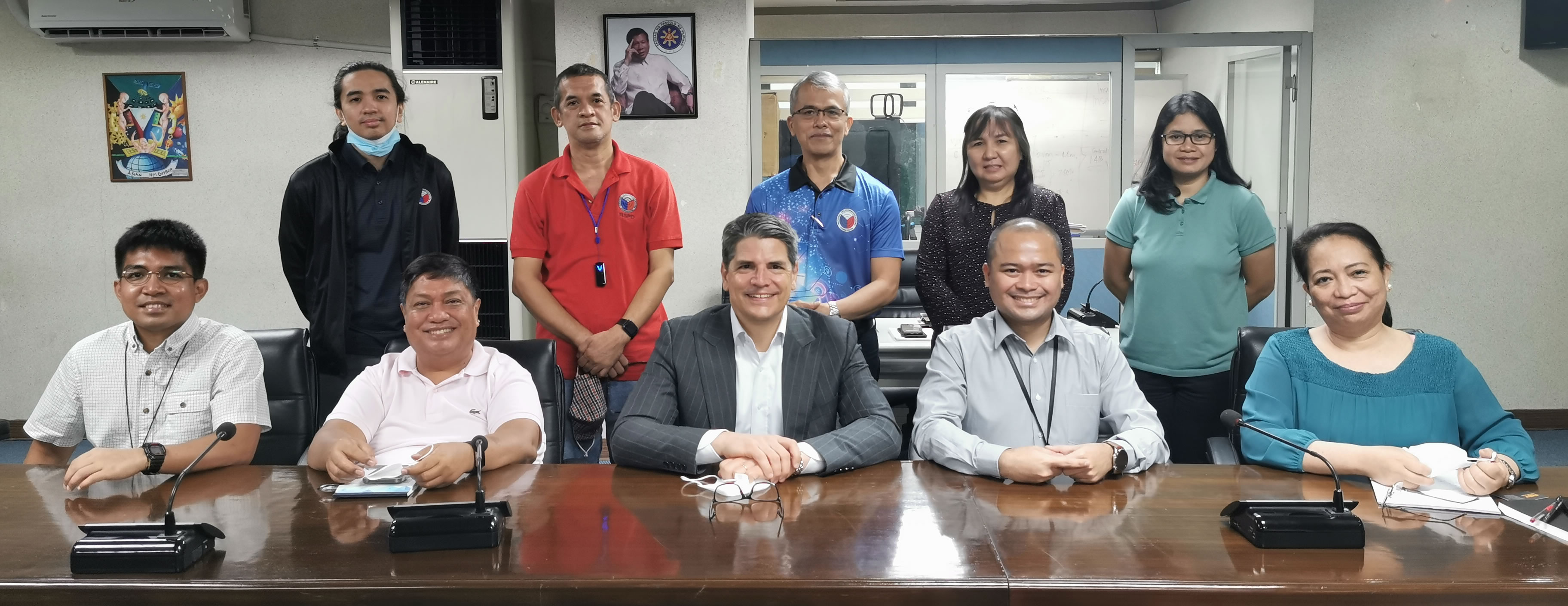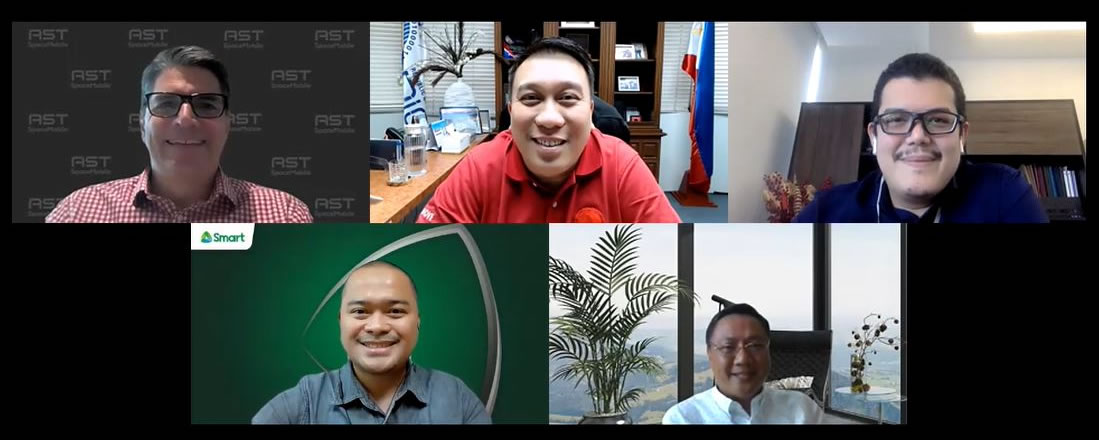

Seated from right: Dir. Imelda R. Walcien, Regulation Branch; Lauro A. Roxas Jr., TSTO Executive; Christopher Ivory, CCO AST SpaceMobile; Engr. Roberto P. Tolentino, Radio Spectrum Planning Division; Atty. Kenneth Regañon, Smart Regulatory Affairs;
Standing from right: Engr. Mary Coleen Cas, Engineer III, SID-RB; Engr. Jesusa B. Lee, Officer-In-Charge, NFD-RB; Engr. Ruben Valeros, Chief, SID-RB; Engr. Crispin Dinglasan, Engineer III, RSPD; Engr. Emmanuel Joseph Sia, Engineer I, RSPD.
Leading integrated telco PLDT and its wireless unit Smart Communications, Inc. (Smart) with their technology collaborator AST SpaceMobile have met with the Department of Information and Communications Technology (DICT) and the National Telecommunications Commission (NTC) to express their support for the government's overall thrust to provide connectivity to Filipinos across the country, including those in far-flung areas.
During the meetings, Smart and AST SpaceMobile presented their plans to conduct tests of AST SpaceMobile’s BlueWalker 3 satellite, which is being designed to communicate directly with unmodified mobile phones from low Earth orbit (LEO) satellite. Smart will be the first to test this technology in the Philippines.
Joining the virtual meeting with AST SpaceMobile Chief Commercial Officer, Chris Ivory, and the DICT were Atty Roy Ibay, Head of Smart Regulatory; Lauro Roxas Jr. of PLDT-Smart's Technology Strategy and Transformation Office (TSTO); DICT Acting Secretary Emmanuel Rey “Manny” Caintic; and DICT Consultant to the Secretary and Acting Chief of Staff Atty. Ira Paulo Pozon.

Clockwise from top-left: AST SpaceMobile Chief Commercial Officer Chris Ivory; DICT Acting Secretary Emmanuel Rey “Manny” Caintic; DICT Consultant to the Secretary and Acting Chief of Staff Atty. Ira Paulo Pozon; Atty Roy Ibay, Head of Smart Regulatory; and Lauro Roxas Jr. of PLDT-Smart's Technology Strategy and Transformation Office (TSTO).
Joining the meeting with NTC were Atty Kenneth Regañon of Smart's Regulatory Affairs; TSTO Executive Roxas; AST SpaceMobile's Ivory; Dir. Imelda R. Walcien, NTC Regulation Branch; Engr. Roberto P. Tolentino, Radio Spectrum Planning Division; Engr. Mary Coleen Cas (Engineer III, SID-RB); Engr. Jesusa B. Lee (Officer-In-Charge, NFD-RB); Engr. Ruben Valeros (Chief, SID-RB); Engr. Crispin Dinglasan (Engineer III, RSPD); and Engr. Emmanuel Joseph Sia (Engineer I, RSPD).
"The digital divide is a massive concern that was further highlighted by the restrictions brought about by the pandemic. Given our country's archipelagic nature, deploying typical terrestrial broadband infrastructure across the Philippines has been a challenge, especially in geographically isolated and disadvantaged areas (GIDAs)," Caintic said.
"Fortunately, newer technologies in satellites are capable of providing much-needed cellular connectivity with more flexibility in their deployment. LEO satellites are an excellent addition to our solution set as they offer low latency, high throughput internet to our GIDAs, and AST SpaceMobile’s technology which is being designed to directly connect to ordinary smartphones could be a game-changer," Caintic added.
"PLDT and Smart have always been at the forefront of innovation, and we are always ready to work hand-in-hand with government to support its thrust to connect more Filipinos across the country and help revitalize the post-pandemic digital economy," said Ibay.
In July 2021, Smart signed a Memorandum of Understanding (MoU) with US-based AST SpaceMobile, a company building "the first space-based cellular broadband network accessible directly by standard mobile phones."
Meanwhile, earlier this year, Smart’s parent company PLDT and global satellite operator Telesat of Canada also successfully conducted the Philippines’ first on-orbit testing of high-speed broadband connectivity with Telesat’s Phase 1 LEO satellite, marking yet another milestone for PLDT as the country’s first local service provider to conduct live in-orbit test over LEO satellite using an end-user terminal installed at the PLDT facility in Greenhills.
These relationships highlight opportunities for the country, through PLDT and Smart, to use innovations in the satellite industry to expand mobile and Internet services to more hard-to-reach communities across an archipelago like the Philippines.
PLDT and Smart’s pioneering foray into satellite-powered communication is part of a broader initiative to deliver world-class customer services across the country, complementing the nationwide rollout of their fiber optics, and wireless networks based on 4G and 5G technologies.

